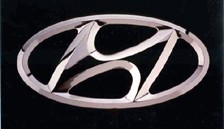Hyundai dealers operating in dual-brand sites with a larger manufacturer believe they’re being threatened over the 2013 Block Exemption Regulation changes that could see such showrooms forced to go solus.
The news was revealed by the brand’s UK managing director, Tony Whitehorn.
He said: “The other manufacturers are approaching the dealers and saying that under the new rules we will be encouraging you to go solus.
"Those manufacturers aren’t saying what that ‘encouragement’ might be, but the dealers are reading between the lines.”
Whitehorn acknowledges the threats have been sparked by Hyundai’s scrappage scheme success, and that traditional volume players have seen their market share eroded.
Hyundai scrappage sales total in 2009 was, at 33,264 units, more than any other manufacturer, giving it a 102% year-on-year increase in sales – and a return on sales of 2.2%, compared to a volume manufacturer average of 1.3%.
“It’s because we are up and coming, and they feel threatened by us. Personally, it makes me very happy that we’re perceived as a viable proposition that other manufacturers need to be concerned about,” he said.
Whitehorn made his comments at the AM Autoretailing Franchised Dealer Conference 2010.
He accused some rival marques of living “more on their heritage than their current position” and warned the outcome wasn’t clear-cut if dealers were forced to pick a franchise to ditch from a site through possible interpretation of new Block Exemption Regulation exclusivity rules
“Our dealers are saying: ‘I would prefer to be a dual business in 2013, but if I’m going to be forced to be solus it might not be with you, the more established brand’.”
Whitehorn’s comments were echoed by Bill Cook, dealer principal at Southend Hyundai and head of the brand’s franchised dealer board.
“I know some of the members have had conversations with volume manufacturers about the issue of them sharing premises with Hyundai, and their unhappiness with it,” Cook said.
He believes manufacturers which call a dealer’s bluff and ask them to choose between that brand and Hyundai could be in for a shock.
“The Hyundai franchise is and will continue to be a profitable one. Consequently it could be a massive issue for them.”
New block exemption regulations set to come into force in June 2013 governing new car sales have raised questions about the power of manufacturers to restrict multi-branding and insist on solus representation.
Kia, another winner in the scrappage scheme, said its dealers had not experienced big brand threats.
“We’re experiencing the opposite: dealers coming to us because they can’t make a solus showroom with a big brand work and in one or two cases have been prepared to kick them out to allow us in,” a spokesman said.
Miles Trower, senior associate at Osborne Clarke, warned against generalizations on the future interpretation of new BER rules.
“There are a number of grey areas which may dissuade manufacturers from taking a more aggressive approach,” he said.
BER explained
Existing BER rules require manufacturers wishing to benefit from the exemption to let their dealers sell brands of at least two competing manufacturers in the same showroom.
Now, European Commission guidance on laws in place from May 2013, explaining the potential for brand restrictions, say they are potentially needed as a result of a 20% increase in costs for dealers and consumers as manufacturers fought to distinguish themselves by increasing investments costs on branding and marketing.
Carmakers had also been cutting back on contributions to dealers’ costs.
The European Commission has introduced a number of safeguards to, what it calls “ensure the distribution of smaller brands”:
- Only manufacturers with a national market share of maximum 30% that impose single-branding obligations my benefit from the block exemption.
- Manufacturers that impose single branding for more than five years cannot benefit from the block exemption. Dealers must be free to terminate the tie after five years.
- Single-branding obligations that are specifically designed to exclude newcomers or smaller brands that are currently sold in existing multi-brand outlets will not be exempted.
- If the widespread use of single-branding obligations leads to competing brands being shut out from the market, the competition authorities may withdraw the benefit of the block exemption for individual car manufacturers.
- If single-branding obligations cover more than 50% of a given market, the Commission may adopt a regulation declaring the block exemption inapplicable to agreements containing such clauses.













Login to comment
Comments
No comments have been made yet.